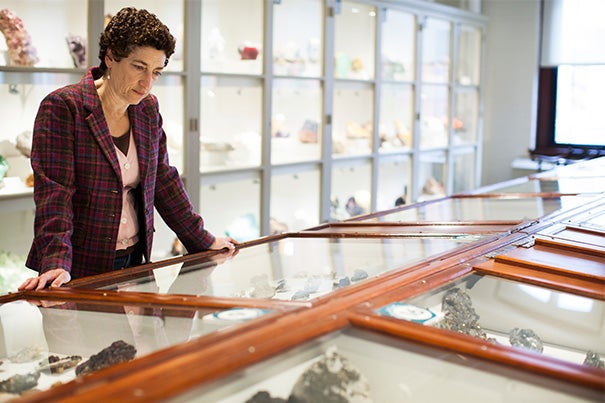Professor honored for work on climate change consensus
Naomi Oreskes to receive Schneider Award for Outstanding Climate Science Communication
More like this
Harvard Professor of the History of Science Naomi Oreskes will be awarded the sixth annual Stephen H. Schneider Award for Outstanding Climate Science Communication, Climate One at the Commonwealth Club announced today.
The award is given to a natural or social scientist who has made extraordinary scientific contributions and communicated that knowledge to a broad public in a clear and compelling fashion. It was established in honor of Stephen Henry Schneider, one of the founding fathers of climatology, who died in 2010.
“I’m deeply honored to receive this award named after Stephen Schneider,” said Oreskes. “As Steve understood, communication is not just about the facts, it’s about conveying the meaning and significance of those facts — and this is what I have tried to do for climate science.”
“Professor Naomi Oreskes is one of the world’s pre-eminent historians of science,” said award juror Ben Santer, a climate researcher at Lawrence Livermore National Laboratory. “Her 2004 Science paper helped to quantify, for the first time, the broad scientific consensus on climate change. Her recent research unmasked the forces behind denial of human effects on climate and improved our chances of having a responsible, science-based discussion of climate change solutions.”
Juror Cristine Russell, senior fellow in Harvard’s Environment and Natural Resources Program, praised Oreskes’ communication prowess: “Her defining work has had a significant impact on public understanding of human-caused climate change. Her masterful, 2010 popular book, ‘Merchants of Doubt’ [with co-author Erik M. Conway], and the subsequent documentary film drew widespread media attention to the ideological and industrial efforts by climate denialists to undermine climate science.”
Oreskes has primarily been interested in the problem of anthropogenic climate change, with a particular interest in understanding scientific consensus and dissent. She is the co-founder of the Climate Accountability Institute and is investigating the ethical and legal obligations of the individuals and groups that have attempted to discredit the scientific evidence of anthropogenic climate change.
She will receive the award in San Francisco on Dec. 15. The award is presented by Climate One, a project of The Commonwealth Club of California.





